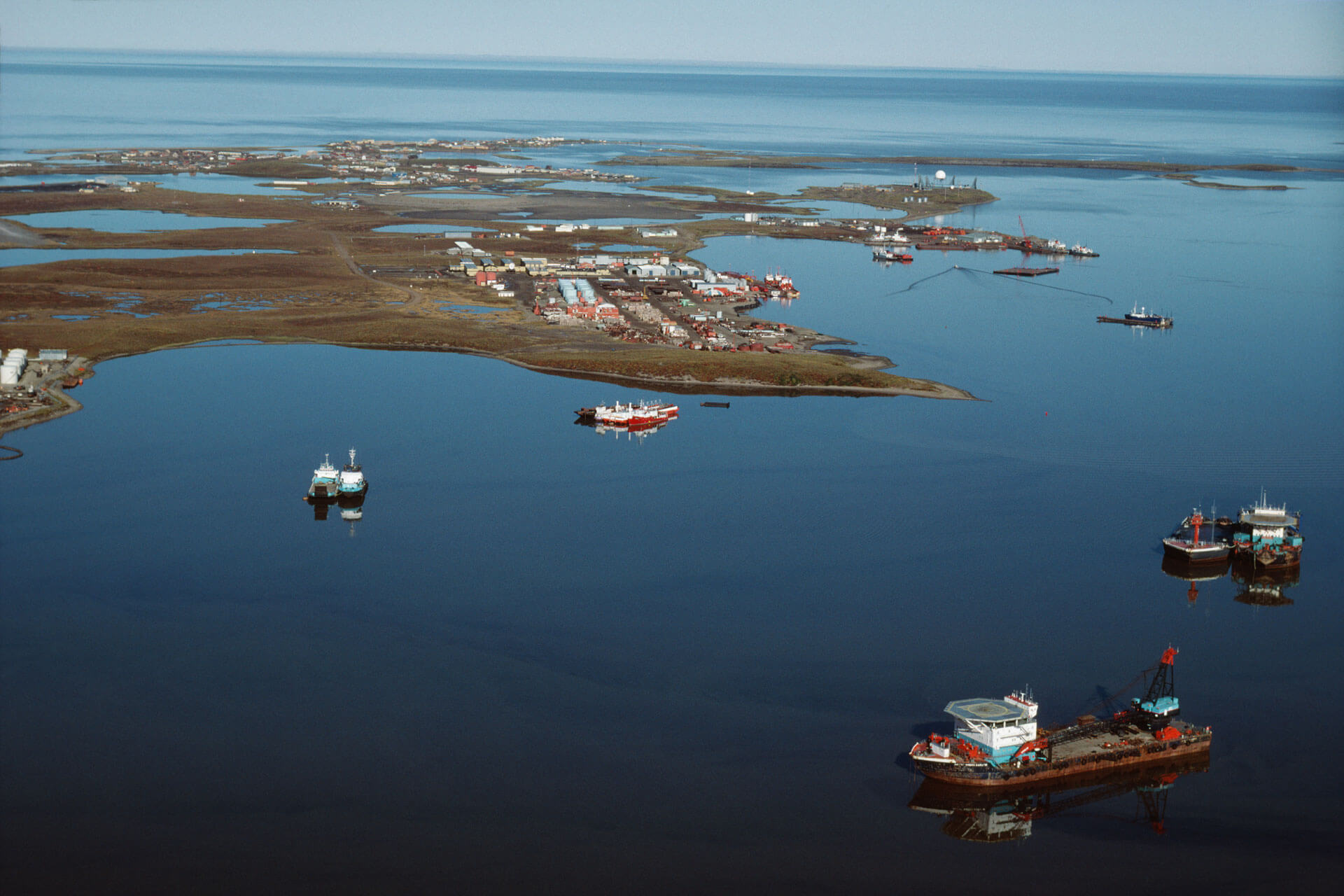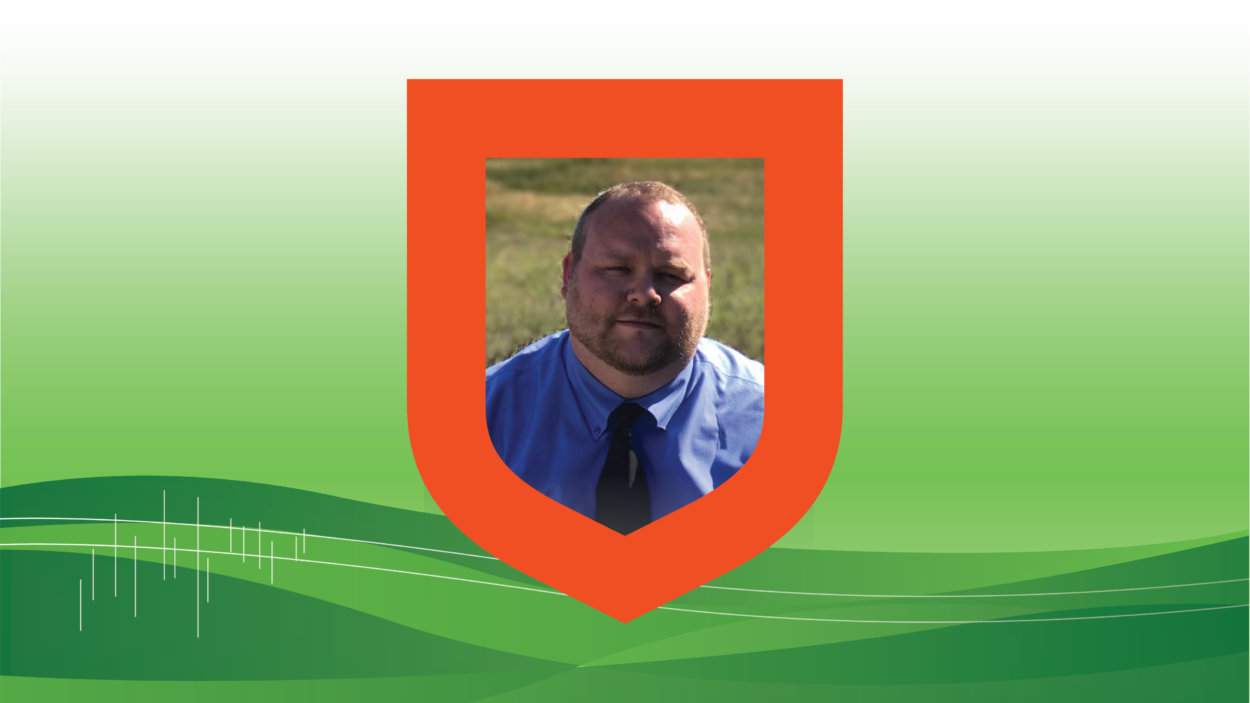Master of Education grad Ephraim Warren learned at a distance—and teaches remotely north of the Arctic Circle
Distance education has come a long way since Ephraim Warren's first experiences with remote learning as a high school student in Grey River, Newfoundland and Labrador.
Warren (Master of Education in Open, Digital, and Distance Education '23) completed Grade 10 math and chemistry through distance education because his school in the remote village—accessible only by boat—wasn't set up to teach multiple subjects per semester.
It was the late-90s, so that meant no high-speed internet, no learning management systems, and no social media study groups.
Early days of remote learning
"My distance experience consisted of a TV screen with the teacher doing a lesson on the black screen, and the teacher explaining what he was doing on the black screen on speakerphone," Warren remembers.
Students were responsible for taking notes and keeping up with weekly assignments that were delivered via mail. Ready to submit an assignment? Fire up the fax machine and hope for the best.
"At times it was challenging, however, I was so thankful to have had the opportunity to take courses that prepared me for post-secondary school."
The experience would propel the Athabasca University (AU) graduate down a path where distance education was not only essential to his learning and career, but also in teaching others. In the process, he learned just as much about himself as he has about education.
"Distance learning taught me to become a sufficient, independent, and self-taught learner."
Learning in the North
Warren is now the principal of Mangilaluk School in Tuktoyaktuk, N.W.T., a small hamlet on the shores of the Arctic Ocean. The school serves about 240 students from junior kindergarten (preschool) to Grade 12, including remote learning, and offers instruction in the Inuvialuktun language.
Warren and his wife Demelza moved to Tuktoyaktuk in 2007 shortly after he completed his bachelor of education from Memorial University of Newfoundland. The North had always held a special appeal, especially the opportunity to learn about the unique culture and ways of life of the Inuit in the Inuvialuit region. Mangilaluk was his first teaching job and he accepted a position teaching math and science. The couple intended to stay for about 1 year.
That was 15 years ago.

Establishing roots in Tuktoyaktuk
"We fell in love with the people, the culture, the school, and most importantly the students," Warren explains. "We had great cultural experiences and have met many amazing people during our many years in the North."
The couple has since established roots in the community, adopting 2 biological siblings, Zoey, 11, and Cody, 13. They've built friendships, enjoy the outdoors and local scenery, and even days out at the beach-during "light season," of course, when sunshine can fill the sky into midnight.
Meanwhile, Warren has continued to grow professionally as an educator and leader at the school. After 12 years of teaching, he advanced to vice-principal and teacher, and now is in his third year as principal.
We fell in love with the people, the culture, the school, and most importantly the students.
Northern Distance Learning
In his role, Warren has helped Mangilaluk students and teachers navigate the COVID-19 pandemic, which posed major logistical challenges to deliver blended learning so that students and staff remained safe. He also helped the school become a leader in Northern Distance Learning. The territorial program, based out of Inuvik, NT delivers learning to students in remote communities to help them prepare for post-secondary.
At Mangilaluk School, students take part in classes offered through this program, often with students from schools across the N.W.T, Warren says. But unlike his high school days of waiting by the mailbox and faxing assignments, students work through the open-source learning platform Moodle.
"It is a major upgrade from when I started distance learning."

Rewards of teaching
As a principal, nothing is more rewarding than seeing a student excel, he adds. The Northern Distance Learning program in particular has allowed several students to graduate and enter university or college without having to upgrade.
"For me, this is a proud accomplishment."
Warren's dedication to his students and staff led him to AU. He wanted to pursue a master's with a focus on leadership to better serve his school.
AU allowed him to pursue his studies without disrupting his career or family. That's particularly important in the Far North considering the nearest brick-and-mortar graduate school is thousands of kilometres away.
When Warren learned that AU's convocation ceremonies on June 16 conflicted with his own school's graduation, it wasn't difficult to decide where he needed to be. As much as he values his master's degree, students come first. That's the life of an educator.
"I have seen these students grow over the years and wanted to take part in their special day," he says. "That's more meaningful for me to witness."
Celebrating Convocation 2023!
Read more stories about AU students and grads as part of our Convocation 2023 coverage.
